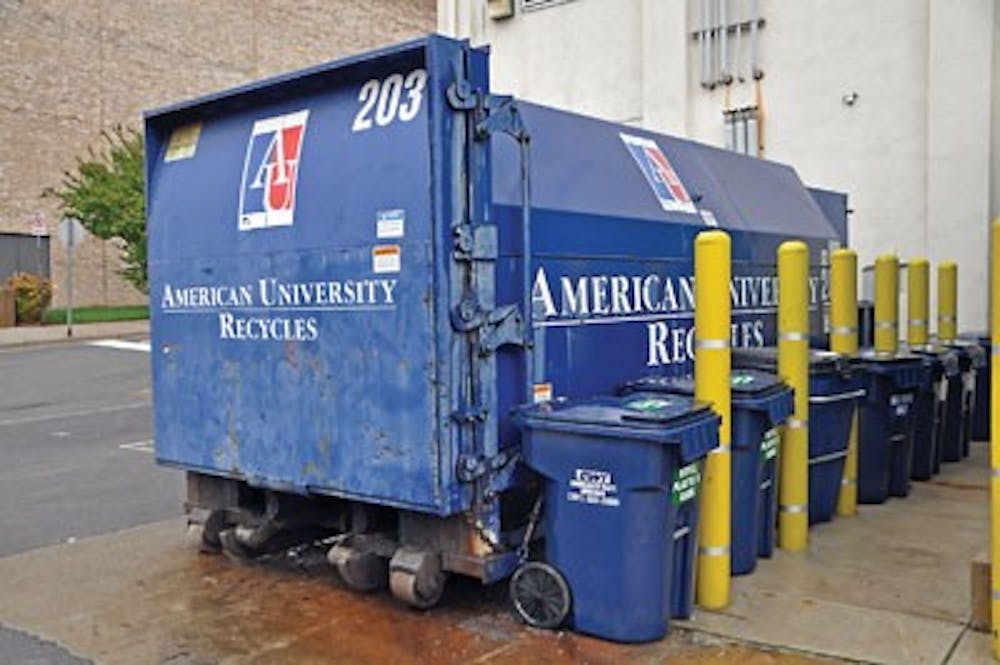AU took third place out of 266 schools nationwide in the RecycleMania Competition with a cumulative recycling rate of 64.9 percent, according to Housing and Dining Programs.
California State University-San Marcos placed first with 71.82 percent, and New Mexico State University came in second with 69 percent.
AU’s recycling rate was the highest for all participating D.C. colleges. Georgetown University came in second with 42.5 percent, and the Catholic University of America came in third with 33.2 percent.
This is AU’s first year participating in the 10-week competition that ranks schools based on the amount recycled per capita, the total amount recycled and other recycling rates, according to RecycleMania’s Web site.
“I think it is awesome that AU has placed third in the RecycleMania 2010 competition, especially with this being our inaugural year of participation,” Assistant Director of Operations for Housing and Dining Sophia Benedicktus said in an e-mail. “AU strives to be a sustainable institution and to be at the forefront of leadership as it relates to being green.”
AU adopted a zero-waste policy in February that may have contributed to its high ranking in the competition.
“In nature there is no waste. The byproduct of one organism is food for another organism,” Director of Sustainability Chris O’Brien said in an e-mail. “Our job with waste is to mimic nature by transforming the university’s byproducts into food for other entities. Our used paper, plastic and metals can be processed into new products — all it takes is for individuals to aim for the recycling bin instead of the trash can.”
AU recently began sending food waste from the Terrace Dining Room to a composting facility in Maryland, according to O’Brien.
“We then buy back the compost at a discounted rate when we need compost for our planting beds on campus,” said Stephanie DeStefano, a grounds operation coordinator, in an e-mail.
O’Brien said he hopes to work with the university in the near future to implement more composting initiatives on campus.
“Eventually, I would like to see us collect compostable waste from the rest of the university and conduct the composting right here on campus,” O’Brien said.
AU also hosted an internal recycling competition between North side, South side and Tenley Campus. North side came in first place with 10.75 recycled pounds per capita, followed by South side with 8.66 pounds per capita and Tenley Campus with 3.93 pounds per capita, according Benedicktus.
Resident Assistants such as Abby Wihl of Anderson Hall put RecycleMania posters throughout the building and tried to engage residents in conversations about sustainability.
“I think the competition has also been a way to show that [AU] is already a fairly sustainably-minded community,” Wihl said in an e-mail.
You can reach these staff writers at news@theeagleonline.com.





